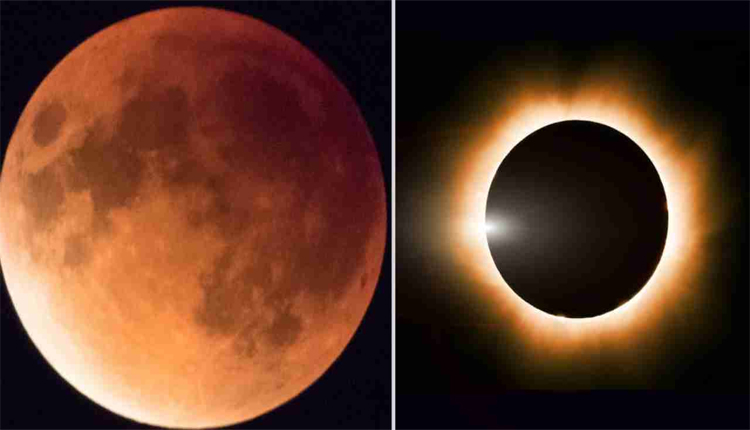New Delhi: A celestial event of rare magnitude is set to unfold on September 7, as a total lunar eclipse coincides with Pitru Paksha — a sacred fortnight in the Hindu calendar dedicated to ancestral remembrance and rituals. This eclipse, occurring after nearly a century during this spiritually potent period, has stirred both religious and astrological interest across India.
According to Jyotishacharyas (astrologers), the eclipse holds deep spiritual significance and is expected to influence cosmic energies, especially during the hours of Sutak — the inauspicious period preceding the eclipse. The Sutak will begin at 9:58 AM IST and conclude at 1:26 PM IST on September 7, marking the window during which religious activities and food consumption are traditionally avoided.
The eclipse is particularly noteworthy for pregnant women, as traditional beliefs advise caution during such celestial events. Experts recommend staying indoors, avoiding sharp objects, and refraining from watching the eclipse directly. These practices, rooted in ancient wisdom, are believed to protect both mother and child from negative energies.
This year’s lunar eclipse also falls within the Pitru Paksha period, amplifying its spiritual weight. Pitru Paksha is observed to honour ancestors through rituals like Shraddha and Tarpan. Many believe that performing these rites during an eclipse enhances their efficacy, as the cosmic alignment is said to facilitate stronger spiritual connections.
Astrologers have also advised devotees to chant mantras, meditate and engage in acts of charity during the eclipse to harness its transformative energy. Temples across the country are expected to adjust their schedules, with many closing during the Sutak period and reopening post-eclipse.
As the nation prepares for this rare astronomical and spiritual convergence, devotees are urged to observe traditional guidelines and embrace the occasion with reverence and mindfulness.



Comments are closed.